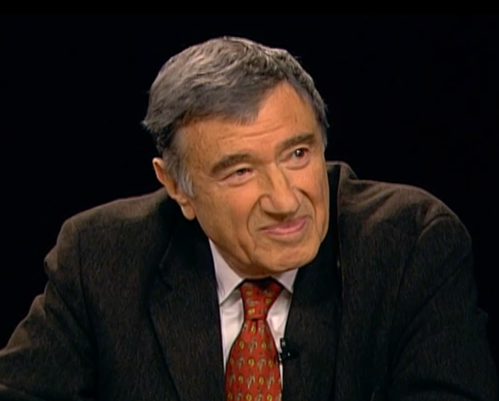Obituary for Dr Etienne-Émile Baulieu (1926-2025)
Obituary for Dr Etienne-Émile Baulieu (1926-2025)- A great French endocrinologist has left us

We share the sadness of the French Society of Endocrinology (SFE) on the death of Etienne-Émile Baulieu, the internationally renowned French doctor and researcher, who passed away on 30 May 2025 at the age of 98. In 1989, he was awarded the Albert Lasker Prize, considered an antechamber to the Nobel Prize, for his essential contributions to the discovery and clinical development of the antiprogestogen hormone RU486, currently known by its international name (INN) ‘mifepristone’.
Etienne-Émile Baulieu was born on 12 December 1926 in Strasbourg. He did his medical and scientific studies at the Faculty of Medicine and Faculty of Science in Paris.
He obtained the title of Doctor of Medicine in 1955.
He worked as an intern at the Hôpitaux de Paris (IHP) between 1951 and 1955 and then as assistant professor to become associate professor of biochemistry at the Paris XI and Paris Sud Faculty of Medicine in Bicêtre. At the hospital level, Etienne-Émile Baulieu was head of the hormonal biochemistry department at the Bicêtre hospital (1968–1992). Just after obtaining his doctorate in science in 1963, he was appointed Director of Unit 33 of INSERM (U33- entitled "Molecular Metabolism and Pathophysiology of Steroids", then "Hormonal Communications") at the Bicêtre Hospital (1963–1998) which he directed for more than 30 years (1963 - 1998).
Known worldwide and recognised as an endocrinologist, Étienne-Émile Baulieu has devoted most of his work to steroid hormones and their antagonists in reproduction, cancers and the nervous system.
In 1959, he discovered the secretion of Dehydroepiandrosterone sulphate (DHEA-S) by the human adrenal glands and described its metabolism and functions. This first earned him an invitation to the United States by Seymour Liberman, a great expert on steroids. There he met Gregory Pincus, a researcher who had developed estrogen-progestin contraception and who would support him in obtaining grants for his research.
A pioneer, with Pierre Chambon and Edwin Milgrom, in the study of intracellular/nuclear receptors for steroid hormones, he participated in 1982 in the discovery of new anti-hormones, such as the anti-progesterone RU 486 (synthetic steroid), whose contragestive properties would revolutionize the lives of millions of women around the world. RU is the acronym of the French laboratory Roussel-Uclaf which brought it to market and the three digits 4–8-6 the serial number of the synthesis of the molecule in the Roussel-Uclaf pipeline. The first results that Etienne-Émile Baulieu presented to the Academy of Sciences showed that this product, later called mifepristone, administered orally to women was safe and effective. These preliminary results will be confirmed by two publications in the New England Journal of Medicine in collaboration with endocrinologist Gilbert Schaison, Dr. André Ullmann and Roussel Uclaf's team.
These successes triggered controversies, which have not been extinguished to this day, on the "facilitation of voluntary termination of pregnancy". Mifepristone saves women from invasive abortion surgery. This drug also has the medico-economic advantage of avoiding a hospital operation and the psychological advantage of the discretion of a difficult decision made by the woman.
In connection with these medical discoveries in reproductive endocrinology, Etienne-Émile Baulieu was appointed Professor of the Collège de France with the Chair: Foundations and Principles of Human Reproduction (1993 to 1998).
This great endocrinologist was president of the French Society of Endocrinology (SFE) in 1978 and president of INSERM and the Foundation for Medical Research (FRM) and president (2003–2004) of the Academy of Sciences, Institut de France.
Additionally he was recognised as a great medical researcher in France by his peers (Grand Prix de la Fondation pour la recherche médicale (1994), Inserm Honorary Prize 2015) as well as by representatives of the nation (Legions of Honor: Knight (1976), Grand Officer (1982), Commander (1991) and dignity of Grand Cross 2023) and society (Grand Prix de la laïcité (2016).
His medical-scientific notoriety logically went beyond the borders of France, which earned Etienne-Émile Baulieu access to many international academic responsibilities. Let us just mention a few: Member of the National Academy of Sciences, USA (1990), Assistant Professor, Scripps Institute of California since 2006. Co-founder of the International Society for Research in the Biology of Reproduction (1967). Member of the New York Academy of Sciences (1985), of Academia Europaea (1989).
He was awarded an impressive number of international awards (we have included only a small number of them here): First European Medal of the Society for Endocrinology of Great Britain (1987). Gregory Pincus Memorial Award from the Worcester Foundation, Massachusetts, with Elwood Jensen (1978). Planned Parenthood Federation of the United States Wippman A and E Awards (1989). Christopher Columbus Award for Medical Discovery from the National Institutes of Health (NIH), USA (1992). Doctor Honoris Causa from the Karolinska Institutet, Sweden (1994). Ken Myer Medal, Australia (2000). International Academy of Humanism Laureate (2002). In 2010 he was awarded honorary membership of the European Society for Endocrinology (ESE).
We remember here the special place of the Albert Lasker Prize in Medicine that he obtained in 1989 for his research on fertility control and especially for the development of RU 486/mifepristone. Medically speaking, the mechanism of action of this molecule is simple for this researcher: it is an antihormone that opposes the muscle relaxant action of progesterone in the uterus, which is therefore an essential hormone for maintaining pregnancy. This antihormone, combined with prostaglandins, stimulates the contractions of the uterus and triggers the expulsion of the fertilized egg in pregnant women at the beginning of pregnancy with an effectiveness rate of more than 90%.
Finally, for those who had the chance to work closely with him like some of us, Etienne-Émile Baulieu was a great passionate teacher and a master who inspired first-year medical students, medical interns, pharmacists and biology students from all walks of life. His passion was for all these actors to work synergistically in the service of health and well-being, especially that of women.
Shared from the French Society of Endocrinology (SFE):
Jacques Young, Jérôme Bertherat, Gérald Raverot.

03/06/2025
